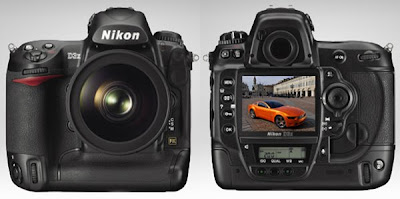I think a joke will lift our collective spirit on this Thanksgiving day. It's a bit long, but you'll get into it pretty quickly. Of course, it's a good thing the photographer is a Canon user...it wouldn't work otherwise. Thanks to Ralph Childs for relaying it to me.
***
The Smiths were unable to conceive children and decided to use a surrogate father to start their family. On the day the proxy father was to arrive, Mr. Smith kissed his wife goodbye and said, 'Well, I'm off now. The man should be here soon.'
Half an hour later, just by chance, a door-to-door baby photographer happened to ring the doorbell, hoping to make a sale.
'Good morning, Ma'am', he said, 'I've come to...'
'Oh, no need to explain,' Mrs. Smith cut in, embarrassed, 'I've been expecting you.'
'Have you really?' said the photographer. 'Well, that's good.Did you know babies are my specialty?'
'Well that's what my husband and I had hoped. Please come in and have a seat'.
After a moment she asked, blushing, 'Well, where do we start?'
'Leave everything to me. I usually try two in the bathtub, one on the couch, and perhaps a couple on the bed. And sometimes the living room floor is fun. You can really spread out there.'
'Bathtub, living room floor? No wonder it didn't work out for Harry and me!'
'Well, Ma'am, none of us can guarantee a good one every time. But if we try several different positions and I shoot from six or seven angles, I'm sure you'll be pleased with the results.'
'My, that's a lot!', gasped Mrs. Smith .
'Ma'am, in my line of work a man has to take his time. I'd love to be in and out in five minutes, but I'm sure you'd be disappointed with that.'
'Don't I know it,' said Mrs. Smith quietly
The photographer opened his briefcase and pulled out a portfolio of his baby pictures. 'This was done on the top of a bus,' he said.
'Oh, my word!' Mrs. Smith exclaimed, grasping at her throat.
And these twins turned out exceptionally well - when you consider their mother was so difficult to work with.'
'She was difficult?' asked Mrs. Smith .
'Yes, I'm afraid so. I finally had to take her to the park to get the job done right. People were crowding around four and five deep to get a good look'
'Four and five deep?' said Mrs. Smith , her eyes wide with amazement.
'Yes', the photographer replied. 'And for more than three hours, too. The mother was constantly squealing and yelling - I could hardly concentrate, and when darkness approached I had to rush my shots. Finally, when the squirrels began nibbling on my equipment, I just had to pack it all in.'
Mrs. Smith leaned forward. 'Do you mean they actually chewed on your, uh...equipment?'
'It's true, Ma'am, yes... Well, if you're ready, I'll set-up my tripod and we can get to work right away.'
'Tripod?'
'Oh yes, Ma'am. I need to use a tripod to rest my Canon on. It's much too big to be held in the hand very long.'
Mrs. Smith fainted.
















































